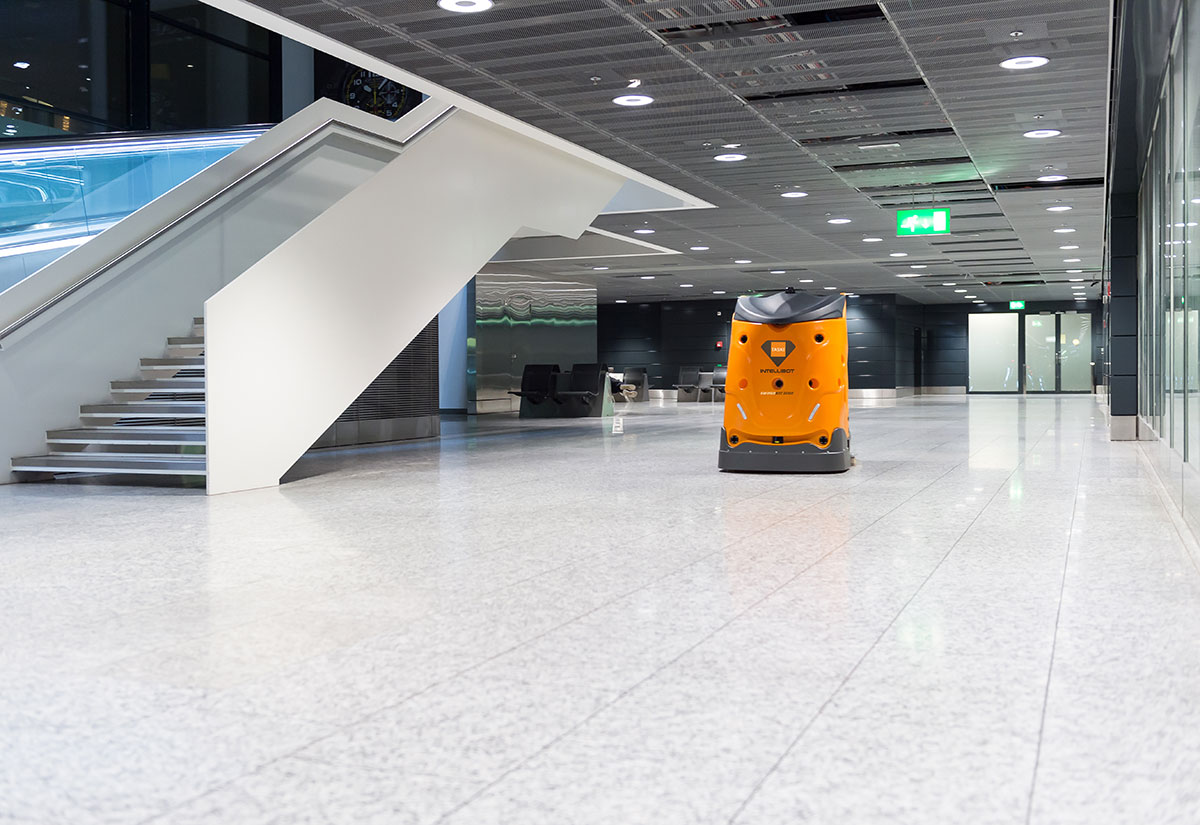In 2015, Japan's Hen-na Hotel announced that it was aiming to launch with an all-robot staff. From check-in bots and robot concierges to porters and maids, it declared they would make it the most efficient hotel in the world. Unfortunately, four years later the reality is rather different: the hotel announced in January that it was “sacking” half its robot staff as they were creating more work for humans and proving unpopular with guests.
While the hotel website promised that “fun moments with the robots will warm your heart,” guests complained that their snoring activated in-room robots, while robot workers were unable to answer many queries and needed human help to perform menial tasks.
Clearly, the human touch is still important in the hospitality sector.
Moussa El Hayek, CEO, Al Bustan Centre and Residence, agrees, pointing out that currently the hotel has no plans to deploy robot staff. “We want to improve guests' overall experience in the most genuine possible way through the competency and integrity of our hotel staff,” he explains. “We strongly believe that human elements make a big difference in service.”

| Advertisement |
However, given the potential for lowering labour costs and improving operations, some hoteliers are exploring the technology. And with the Middle East having a young, tech-savvy population, it is not surprising that some robotics companies are targeting the regional hospitality sector.
Robots can “alleviate stress, fatigue and lighten up the burden to human employees as well as efficiently drive an establishment’s operation,” says Lahnie Iman Samonte, operations manager at solutions provider Amro Kamel Group, which last year launched a drink-serving robot in the region. “These technological advancements are tools for us to perform and serve better, that’s why we call this solution of integrating robots with humans 'Co-Bots' - Human Cooperation with Robots.”
Franziska Purkert, corporate director housekeeping, operations at Rotana Hotel Management Corporation, points out that robots are already regularly deployed in the region for cleaning windows and facades on high-rises.
“In the same way, hotels can replace some of the human workforce with robots for floor cleaning as an example with significant cost and time savings. It is highly likely that with the fast acquisition of robots in their operations, hotels can win a competitive advantage over their peers in the industry,” she said. “Although the initial investment for the acquisition of robots will be high, hotels can make considerable savings in payroll expenses, which make up the largest component of their overhead costs, by replacing their human workforce with robots.”
Research suggests that hoteliers should be cautious about moving too quickly to robotics solutions, however. According to a global survey by technology company Oracle, while 33% of consumers said that robots being used to serve guests would enhance their experience, only 22% would visit a hotel more often if it offered such services.
“While robots may help in different ways and may lessen the time and effort staff spend in doing manual tasks, the way we extend our hospitality services in some areas/scenarios will be affected,” say Al Bustan’s El Hayek. “Looking at its capability, robots are limited to specific tasks although automation, particularly having self-check-in and checkout software, can lessen waiting time and queuing.”
As the travails of Japan’s Hen-Na Hotel show, guest-facing solutions need to become smarter if they are going to deliver optimal levels of service. For hoteliers, that could mean robots that not only greet guests, but demonstrate the capability to learn their needs and preferences during the course of their stay.
“The use of robotics and artificial intelligence (AI) is becoming increasingly prevalent in today’s hospitality industry,” says Ahmed Ramzy, regional head of hospitality, MEA, LG Electronics. “With the recent introduction of a number of service robots to the market, it will become even easier for hotels to implement robotics and AI into their services, learning and evolving to meet the needs of their guests with greater efficiency. It opens up the opportunity of far more personalised services, catered to individual needs and tastes. This has the potential to make guests feel as though they are not being addressed with a one-size-fits-all approach.”
Where robotic solutions do seem to offer benefits is in functions such as cleaning and maintenance. Diversey provides a range of automated cleaning solutions to hotels in the region, which can be voice-programmed and monitored remotely. The connected solutions provide real-time data about such areas as working time, battery life and other maintenance issues.
“If a guest has an especially dissatisfying experience due to an unclean room or dirty common areas, they may never want to return to that property or any other properties operated by your brand,” says Alp Aksoy, director of hospitality, Africa, ME, and Turkey, Global Strategic Accounts, Diversey.
“In order for your hotel to win five-star ratings for its sparkling surroundings, it’s important to understand not only where and what to clean, but how, and with which tools, equipment and products. By doing so, your guests will have the best possible experience and your property’s bottom line can improve.”
“One can also expect that robots, if deployed properly, will offer a healthier guest service environment,” says Rotana’s Purkert. “For example, window cleaning robots can offer more privacy to guests, safety, efficiency and crystal clear views no matter the time of the year.
“However, we have to take many aspects of risks attached to new technologies into consideration before adopting them into business. For example, maintenance costs can sometimes take any cost savings away and technical glitches can lead to unforeseen service disruption,” she added.









 Search our database of more than 2,700 industry companies
Search our database of more than 2,700 industry companies









